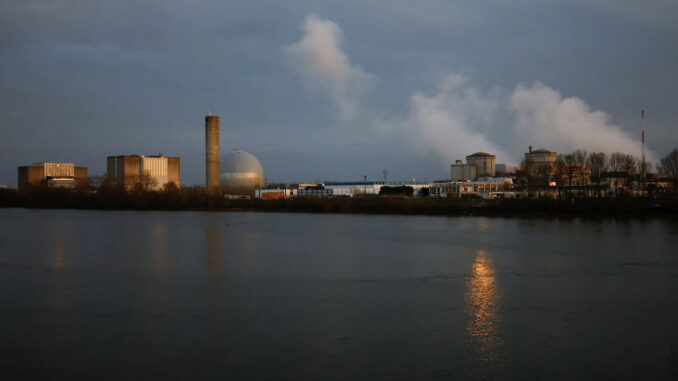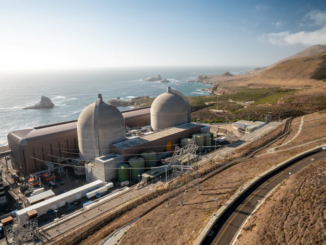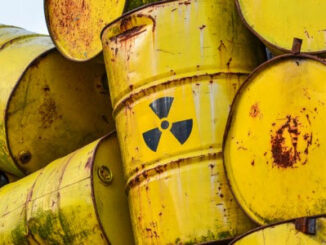
Plumes of steam towered above two reactors recently at the Chinon nuclear power plant in the heart of France’s verdant Loire Valley. But the skies above a third reactor there were unusually clear — its operations frozen after the worrisome discovery of cracks in the cooling system.
The partial shutdown isn’t unique: Around half of France’s atomic fleet, the largest in Europe, has been taken offline as a storm of unexpected problems swirls around the nation’s state-backed nuclear power operator, Électricité de France, or EDF.
As the European Union moves to cut ties to Russian oil and gas in the wake of Moscow’s war on Ukraine, France has been betting on its nuclear plants to weather a looming energy crunch. Nuclear power provides about 70 percent of France’s electricity, a bigger share than any other country in the world.
The outages at EDF, Europe’s biggest electricity exporter, have sent France’s nuclear power output tumbling to its lowest level in nearly 30 years, pushing French electric bills to record highs just as the war in Ukraine is stoking broader inflation. Instead of pumping vast amounts of electricity to Britain, Italy and other European countries pivoting from Russian oil, France faces the unsettling prospect of initiating rolling blackouts this winter and having to import power.
EDF, already 43 billion euros (about $45 billion) in debt, is also exposed to a recent deal involving the Russian state-backed nuclear power operator, Rosatom, that may heap fresh financial pain on the French company. The troubles have ballooned so quickly that President Emmanuel Macron’s government has hinted that EDF may need to be nationalized.
“We can’t rule it out,” Agnès Pannier-Runacher, the minister for energy transition, said Tuesday. “We are going to need massive investments in EDF.”
The crunch could not have hit at a worse time. Oil prices touched record highs after the European Union agreed to cut off Russian oil, intensifying economic pain in Europe and adding to a cost-of-living crisis that France and other countries are scrambling to address. The price of natural gas, which France uses to make up for fluctuations in nuclear-powered energy, has also surged.
As Russian aggression redefines Europe’s energy considerations, nuclear energy’s advocates say it can help bridge Europe’s fuel deficit, complementing a shift that was already underway to adapt wind, solar and other renewable energy to meet ambitious climate-change targets.
But fixing the crisis at EDF won’t be easy.
With 56 reactors, France’s atomic fleet is the biggest after the United States’. A quarter of Europe’s electricity comes from nuclear power in about a dozen countries, with France producing more than half the total.
But the French nuclear industry, mostly built in the 1980s, has been plagued for decades by a lack of fresh investment. Experts say it has lost valuable engineering expertise as people retired or moved on, with repercussions for EDF’s ability to maintain the existing power stations — or build ones to replace them.
“EDF’s strategy, endorsed by the government, was to delay the reinvestment and transformation of the system,” said Yves Marignac, a nuclear energy specialist at négaWatt, a think tank in Paris. “The more EDF delays, the more skills keep getting lost, technical problems accumulate and there is a snowball effect.”
Mr. Macron recently announced a €51.7 billion blueprint to rebuild France’s nuclear program. EDF would construct the first of up to 14 mammoth next-generation pressurized water reactors by 2035, as well as smaller nuclear plants — the cornerstone of a broader effort to reinforce France’s energy independence and meet climate goals.
But the few new nuclear reactors that EDF has built have been dogged by huge cost overruns and delays. An EDF-made pressurized water reactor at Hinkley Point, in southwest England, won’t start operating until 2027 — four years behind schedule and too late to help Britain’s swift turn from Russian oil and gas. Finland’s newest EDF nuclear power plant, which started operating last month, was supposed to be completed in 2009.
EDF’s recent troubles began mounting just before Russia invaded Ukraine. The company warned last winter that it could no longer produce a steady nuclear power supply, as it struggled to catch up with a two-year backlog in required maintenance for dozens of aging reactors that was put off during coronavirus lockdowns.
Inspections unearthed alarming safety issues — especially corrosion and faulty welding seals on crucial systems used to cool a reactor’s radioactive core. That was the situation at the Chinon atomic plant, one of France’s oldest, which produces 6 percent of EDF’s nuclear power.
EDF is now scouring all its nuclear facilities for such problems. A dozen reactors will stay disconnected for corrosion inspections or repairs that could take months or years. Another 16 remain offline for reviews and upgrades.
Others are having to cut power production because of climate change concerns: Rivers in the south of France, including the Rhône and the Gironde, are warming earlier each year, often reaching temperatures in the spring and summer too warm to cool reactors.
Today, French nuclear production is at its lowest level since 1993, generating less than half the 61.4 gigawatts that the fleet is capable of producing. (EDF also generates electricity with renewable technologies, gas and coal.) Even if some reactors resume in the summer, French nuclear output will be 25 percent lower than usual this winter — with alarming consequences.



